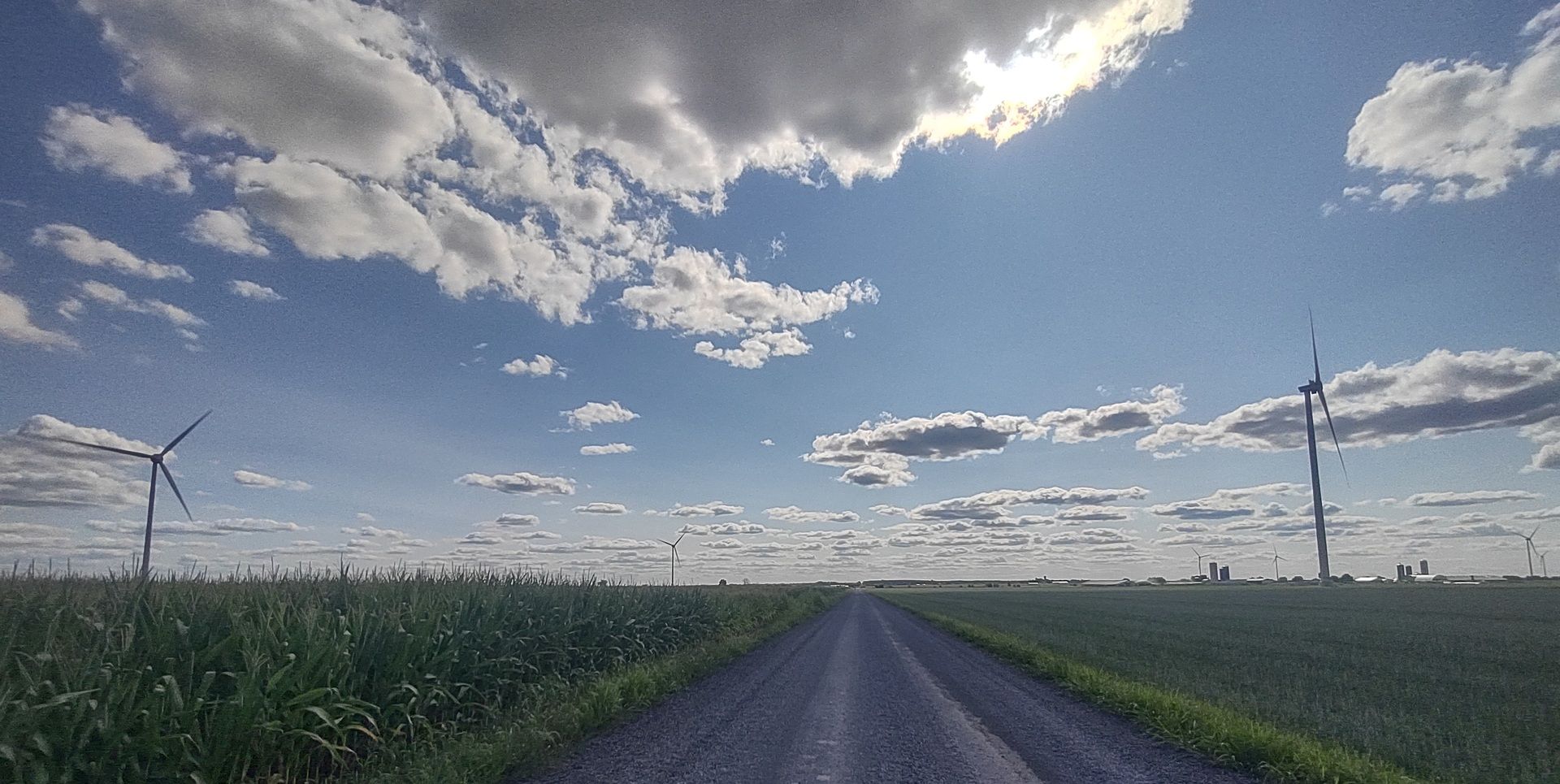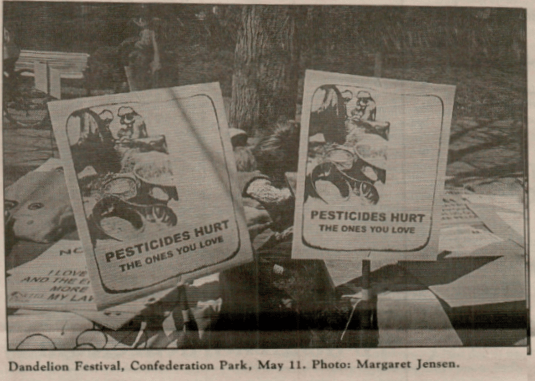- Peace and Environment News
- Posts
- September 2025
September 2025
Supreme Court of Canada; Slow Water Movement; Toronto Bike Lanes; Municipal Pesticide Bans
Hello,
Welcome back from summer. It’s the second day of October, but make no mistake—this is the September edition of the PEN Newsletter.
After running an article in the July/August Newsletter touting the benefits of electric school buses, I think it is important to highlight that in early September 1,200 electric school buses produced by Lion, a Quebec-based company, were pulled from operation across the province after an electric bus caught fire. No passengers were harmed, but this was the third such fire on Lion electric buses. The buses have since been returned to their routes. While the cause has not yet been determined, inspectors noted “potential anomalies in a sub-component of the HVAC system that Lion obtains from a third-party supplier.” Local firefighters say the fire did not spread to the lithium-ion battery pack.
On another note: the Supreme Court of Canada (SCC) keeps a lower profile than its American counterpart, but its rulings still have a major influence on Canadian life. Recently, the federal government asked SCC to weigh in on “constitutional issues raised by the use of the notwithstanding clause.”
For context, the notwithstanding clause allows federal or provincial legislatures to passed legislation that is protected from judicial review for five years, despite any conflict the legislation may have with the Charter of Rights and Freedoms. The clause was drafted as a compromise to secure buy-in from provincial governments, whose authority would be threatened by the Charter’s protection of individuals’ rights. But in doing so, it created a way for provinces to effectively sidestep Charter rights, prompting former prime minister Brian Mulroney (though Pierre Trudeau was PM when the Charter was passed) to quip that the Charter “was not worth the paper it is written on.”
Unlike the U.S., in Canada the federal government can ask the SCC to weigh in on a legal matter without a relevant case being brought forward. And so it is now with the notwithstanding clause. The request is seemingly prompted by Quebec’s secularism law, Bill 21, which prohibits public sector employees in positions of authority from wearing religious symbols while at work. Both the federal government’s request, and SCC’s agreement to hear the case, have therefore prompted backlash from premiers like Ontario’s very own Doug Ford, who has both used the clause and threatened to use it, such as when his government moved to block a teacher’s strike in 2022.
A ruling by SCC could therefore limit how the notwithstanding clause can be used—which would be the first such limit since the Charter was passed in 1982—with implications for the rights and freedoms of everyone living in Canada.
Stories from the PEN!

Wind turbines in North Gower. Image Credit: C. Bonasia
This month’s stories from the PEN include:
In Slow Water Movement is Growing Around the World, Lynn Jones draws attention to how landscapes can influence natural water flows and runoff, with major impacts on the health and well-being of our communities.
An article from The Energy Mix describes how Doug Ford’s government is appealing a court decision that determine the province’s plan to tear down 19 kilometres of protected bike lanes in downtown Toronto violates Canada’s Constitution.
From the PEN Archives
The September 2002 edition of the PEN covered an initiative to end cosmetic pesticide use in Ottawa. At the time, the City was moving into the final phase of pesticide reduction strategy that would lead to a public meeting of the Health, Recreation, & Social Services Committee to review options for action. If the Committee and City Council both agree on a bylaw to ban cosmetic pesticides, more public meetings would be held throughout the month to consider specific details about implementation, exemptions, etc. The result would be brought to HRSSC and City Council on subsequent dates in December.
Editor’s note: The initiative was similar to several other bans being pursued by cities across Canada at that time. The year before, the Supreme Court of Canada had passed a ruling in Spraytech v. Hudson that allowed the Town of Hudson, Quebec, to enact a bylaw restricting the pesticide use within the municipality. The decision empowered municipalities to enact similar bylaws to protect residents.
Other News
CTV reports that a maximum heat temperature bylaw for rental units “presents complex legal, technical, and affordability challenges,” experts say.
The Mississippi Madawaska Land Trust has permanently protected the 125 hectare Maple Cross Newlands Nature Reserve in the Madawaska Highlands of North Frontenac Township, says Stittsville Central.
Ottawa Mayor Mark Sutcliffe has pledged to end youth homelessness in the capital city by 2030, stating that ending youth homelessness “the first step to ending all homelessness…because we know that almost 50 per cent of those who experience adult homelessness were first homeless before the age of 16.”
Are you interested in how the federal Liberal and Conservative parties compare when it comes to agriculture policies? Read this article from RealAgriculture for a breakdown.
City Council has approved a plan to develop a strategy to address food insecurity. But Council has not actually addressed food insecurity. And the motion does not declare a formal food security emergency like Brockville, Smiths Falls, and Kingston have done, reports CTV.
The Ottawa Food Bank issued a reminder that September is Hunger Action Month.
Information Commissioner Caroline Maynard, head of the country’s freedom of information watchdog, says government departments are wrongly withholding records “on the grounds that they are exempt from disclosure because they count as advice to ministers,” writes the Globe and Mail. Maynard maintains that exemptions to the federal access-to-information law are being used to deny requests for government information.
City of Ottawa staff have proposed bus-only lanes along Bank Street in the Glebe to reduce traffic. The plan would make one lane “exclusive for northbound buses heading to the core between 7 and 9 a.m. and again southbound between 3:30 and 5:30 p.m.,” says CBC.
Eight Ottawa neighborhoods are urgently need more trees. A 2017 tree canopy assessment found that neighborhood tree cover declines 4% for every $10,000 drop in neighbourhood median income, CBC reports.
Also, sign up here to receive all your weekly news from the City of Ottawa in one weekly email.

The Devil Makes Three plays at CityFolk, Lansdowne Park, Sept. 12, 2025. Image Credit: O. Bonasia
I look forward to connecting with you again next month through the PEN Newsletter. In the meantime, please use the comments section of the newsletter or email [email protected] with thoughts or questions.
—Christopher Bonasia, PEN editor
PERC appreciates all of our readers for giving us this chance to connect with members of our community, and we love being able to provide you with a forum to discuss pressing environmental and social justice issues.
But we also rely on your support to make this happen. If you are interested in helping our organization continue to use storytelling and networking to help individuals, non-profits, and community groups work locally for a greener and more peaceful world, please consider making a donation to the Peace and Environment Resource Centre.


Reply